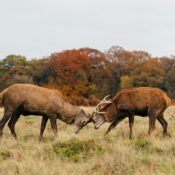
From Tourist to Storyteller: What I Learned in a Tanzanian Village
When I first landed in Tanzania, I had a bucket list in mind—spot lions on safari, catch the Great Migration, and maybe, if time allowed, spend a few hours in a local village to “see the culture.” But what I didn’t expect was that the short village visit I nearly skipped would become the most transformative part of my journey. It changed the way I travel, the way I think, and most of all, the way I tell stories.
The Village I Never Planned On Visiting
Nestled near the Ngorongoro Highlands was a small village, not marked on tourist maps and not bustling with souvenir shops or curated experiences. It wasn’t part of any itinerary I had booked. I was invited there by a local guide named Emmanuel, who said, “You’ve seen the lions, now meet the heart of Tanzania.”
Curious and slightly unsure, I agreed. That choice turned a vacation into a revelation.
First Impressions: Simplicity, Smiles, and Shared Humanity
The village was modest—mud-brick homes, goats grazing nearby, and children playing with hand-crafted toys. No Wi-Fi, no restaurants, no camera-ready backdrops. But what it lacked in modern amenities, it more than made up for in warmth and authenticity.
As I stepped out of the jeep, I was greeted not with performances or prepared speeches, but with genuine curiosity. “Where are you from?” one elder asked me in Swahili, translated by Emmanuel. “What is your story?”
That question stuck with me.
A Different Kind of Wealth
Over the next several hours, I was welcomed into homes, offered sweet tea, and invited to sit under trees where elders shared stories of their land, rain cycles, and how community decisions are made collectively.
What struck me wasn’t just their hospitality, but their perspective. While we often define success by careers and material things, they spoke in terms of community, seasons, and well-being. Children weren’t worried about the latest gadgets; they played with joy, laughter, and imagination.
The simplicity wasn’t rooted in lack—it was intentional. Life was slower, but more connected. Conversations weren’t rushed. Meals weren’t eaten alone. Celebrations weren’t occasional—they were woven into the fabric of daily life.
Learning by Listening
One of the most powerful moments came when I sat with Mama Zawadi, a respected woman in the village known for her wisdom. Through Emmanuel’s translation, she told me, “In our village, we say, if you want to understand someone, you must listen to their silence.”
That idea floored me.
Back home, silence is often uncomfortable—something to be filled. But here, silence was sacred. It was space for thought, respect, and reflection. It was a reminder that not everything important is loud. Sometimes, the most meaningful parts of a story are what’s left unsaid.
When You Put the Camera Down
Initially, I had been taking photos—trying to capture every moment, every smile. But as the day wore on, I noticed something: the more I focused on getting the right shot, the more I missed the essence of the moment.
So I put the camera down.
I laughed without thinking about angles. I asked questions not to document, but to understand. I danced with a group of kids to the beat of a jerry-can drum. And for the first time during my entire trip, I wasn’t observing—I was participating.
That shift—from seeing to being—was the moment I stopped feeling like a tourist.
The Stories That Aren’t Told in Brochures
Travel brochures highlight Tanzania’s wildlife, its national parks, its mountains. But they often miss the people—the real soul of the country.
These aren’t stories of hardship or pity. These are stories of resilience, humor, wisdom, and grace. Stories of farmers who understand the language of the earth, of children who can turn scrap into art, of families who measure wealth not by what they own but by how often they gather.
Leaving the village, I realized I wasn’t just taking home souvenirs. I was carrying stories—stories that deserved to be told with truth, care, and dignity.
From Tourist to Storyteller
When I returned home, friends and family asked, “How was the safari?” “Did you see elephants?” “How was Kilimanjaro?” I answered with enthusiasm. But then, I would pause and say, “Let me tell you about this village I visited…”
And just like that, I wasn’t just sharing travel tips—I was telling stories that opened windows into another world.
I’ve learned that as travelers, we have a responsibility. We’re not just passing through—we’re witnesses. And the way we tell the stories of the places we visit can either reinforce stereotypes or break them down. We can either romanticize poverty or highlight dignity. We can either skim the surface or go deeper.
Final Thoughts:
That Tanzanian village didn’t just give me an afternoon experience—it gave me a shift in mindset. I now travel differently. I ask more questions. I listen more deeply. I try to connect, not consume.
In a world that often treats travel as a checklist of attractions, my time in that village reminded me of a deeper truth: the most powerful journeys happen not in tourist sites, but in human connections.
So, if you ever find yourself in Tanzania—or anywhere, really—go beyond the guidebooks. Sit down with someone. Ask their story. Share your own. You might just return home not as a tourist, but as a storyteller.




